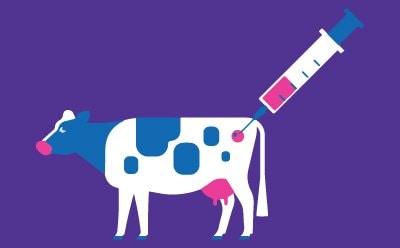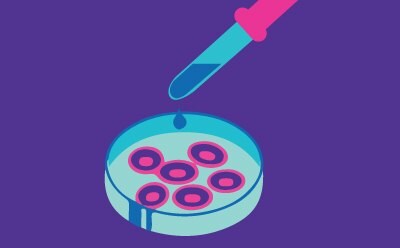The Perfect Recipe
Cultured Meat, Sustainability and Your Dedication to Safety
*Image of cultured meat burger provided by Mosa Meat
Food scientists, food and beverage manufacturers, and consumers are advancing sustainable ways to feed a growing population that focus on minimizing negative environmental impacts. A multi-solution approach is key, with lifestyle choices like meatless Mondays, flexitarianism, veganism, and reducing food waste as examples of how consumers contribute to sustainable ways of eating. As a science and technology company with over 350 years of experience in regulated industries, we are here to support food scientists and manufacturers in developing and implementing current and future ways of eating, such as sustainable food packaging, alternative proteins, cultured meat and seafood to ensure we can protect our planet while safely feeding its people. Read our latest whitepaper to better understand the regulations, HACCP, culture media and QC required for cultivated proteins.
Are you ready to learn more about our solutions for cultured meat testing and production?
Cultured Meat Workflow Solutions & Services


Scale Up & Manufacturing for Cultured Meat Production
Once the cell line is established, it undergoes a scale-up process to increase cell production. This involves optimizing the growth conditions and developing large-scale bioreactors for mass cell cultivation.

Analytical Testing
To ensure the quality of the cell culture, thorough quality control (QC) measures are implemented. These include chemical analysis to monitor nutrient levels.

Microbiological Analysis & Product Testing

HACCP / Environmental / Hygiene
Strict control measures are put in place to ensure the safety and hygiene of the manufacturing process. This involves implementing Hazard Analysis and Critical Control Points (HACCP) protocols and maintaining a clean and controlled environment.

Safety & Regulatory Services
Safety and regulatory compliance play a vital role in cultivated meat production. Expert services are often engaged to navigate the complex regulatory landscape, ensuring that the final products meet all legal requirements and consumer safety standards.
- Food Safety Regulatory Compliance
- Food & Beverage QC Systems Qualification
- Food & Beverage Microbial Method Validation
- Validation Services
- Custom rec AB
CULTURED MEAT – Invention, Risk, & solutions
The rise in global consumption of meat is caused by the increase in population and consumption per capita. The production of meat has doubled in the past 30 years (1988 to 2018) and is expected to grow exponentially. By 2050, global meat consumption is projected to reach between 460 million and 570 million tons. If consumption continues to grow at this rate, by 2050, when the global population will be nearly 10 billion, there is a distinct possibility that the population will surpass the current food production capacity. The traditional methods used to produce meat by farming animals are environmentally unsustainable as it uses more energy, water, and land. Additionally, meat production is a large source of greenhouse gas emissions and as a result, plays a major role in climate change.
To address these issues and to create a sustainable, tasty, and healthy alternative to traditionally farmed meat, cultured meat or seafood – grown using in-vitro cell cultures of animal cells, rather than farm-grown – offers that alternative to conventional animal protein.
Cultured meat also referred to as lab-grown, clean, and cell-based meat was introduced in the early 2000s and has gone from strength to strength. While most efforts in the space focus on common meats such as pork, beef, and chicken, some companies have focused on high-end or exotic meats including Elk, Lamb, Bison, and the prized Wagyu strain of beef. However, meat is not the only target for these innovative companies as some are working on grouper, Salmon, other fish species, and seafood.
Cell Culture Media for Cultured Meat Testing
Cultured meat and seafood are produced in a clean, sterile environment and hence inherently less prone to virus and bacteria contamination. However, rigorous safety tests will be demanded from start to finish – from the validation of everything that enters the bioreactor and determining the nutritional content to safety of the final product.
Our cell culture media offerings include:
- Customized, standard basal, and new formulation manufacturing
- Dry powder and liquid media options that scale
- Food safety and quality management system processes
With these stringent regulations, partnering with us ensures that you have access to the products and services that meet and exceed the latest regulations. We support your complete process –from R&D and pilot scale up to full-scale manufacturing, by offering the products and solutions designed to solve your toughest challenges in the microbiology testing labs.

Discover the conferences & events where our cultured meat experts will be participating – panel discussions, keynotes, sponsorships and more by following the hashtag #ConsiderMeCultured on LinkedIn – and join the conversation.
Get in touch with an expert to discuss our solutions for cultured meat testing and production:
Related Resources
- Flyer: Cultured Meat Collaboration with AlephFarms
Get an insight into scale-up collaboration for Cultured Meat companies & MilliporeSigma
- Flyer: Plant-based Food Testing
Explore our flyer for key testing parameters, applications, and ingredient-specific compounds for alternative protein foods. Addressing challenges with plant-based meat substitutes and more.
- Flyer: Elevate Cultured Meat Research
From well-characterized reagents to high-quality products, we're driving innovation in creating in vivo-like conditions for cell culture. Read the flyer to learn about the cell culture portfolio that supports meat production with ethical, sustainable, and delicious alternatives.
- Whitepaper: Cultured Meat and Seafood
A guide to Regulations, HACCP, Culture Media and Quality Control for Cultured Meat and Seafood.
- PDF: The New Food Revolution Cultured Meat Trend Study
A comprehensive trend study on cultured meat and its impact on society, the food industry and the future of meat consumption.
- Brochure: Safe Solutions For Food
When it comes to determining food quality and ensuring food safety, sample preparation is key for rapid and precise analysis. This brochure details various workflow solutions and best-in-class products that suit your testing needs.
- Brochure: Sustainability and Milli-Q® Lab Water Solutions
From decreasing water and energy consumption to minimizing plastic and chemical waste, Milli-Q® water purification systems are designed to reduce their ecological footprint, to better support your sustainability goals.
Pour continuer à lire, veuillez vous connecter à votre compte ou en créer un.
Vous n'avez pas de compte ?